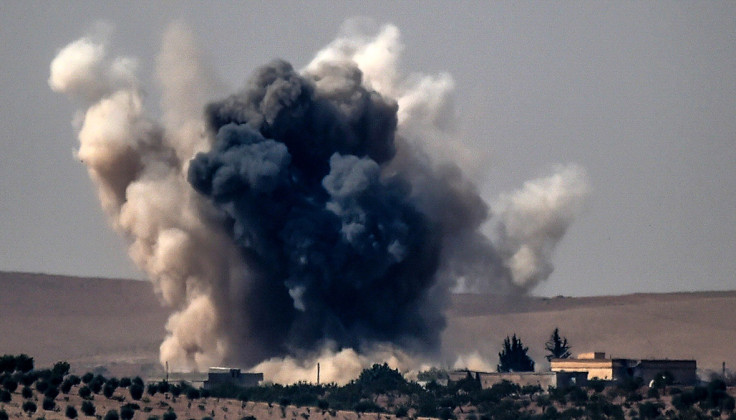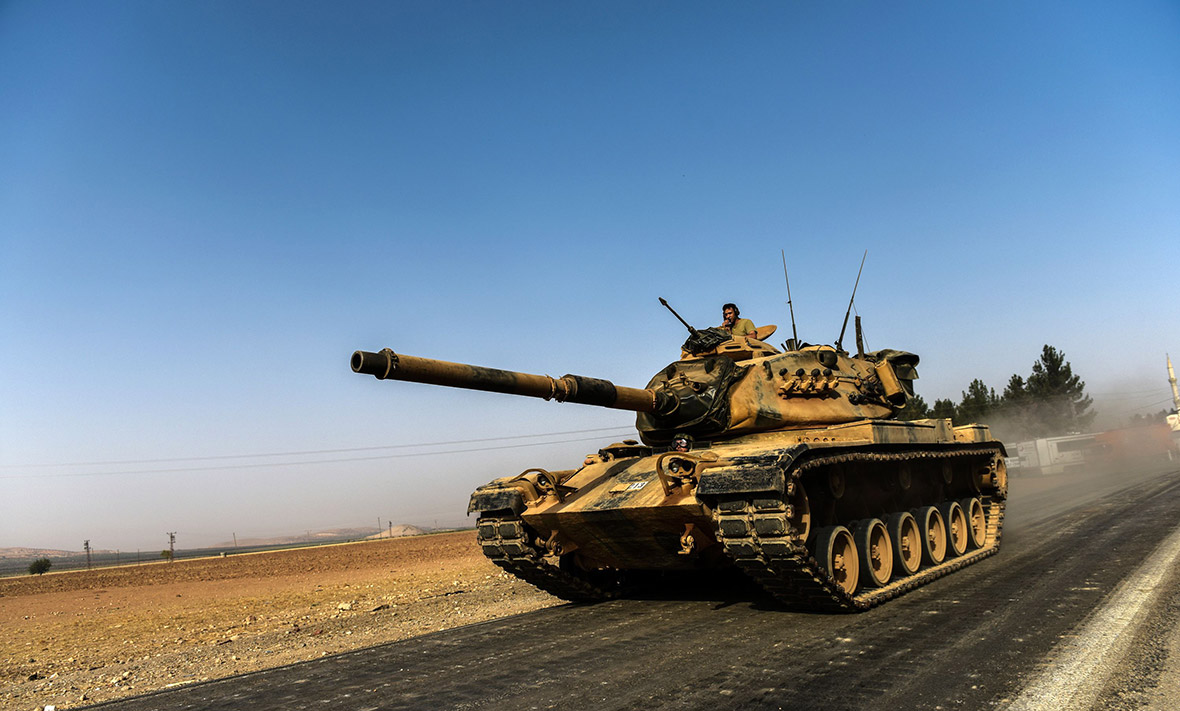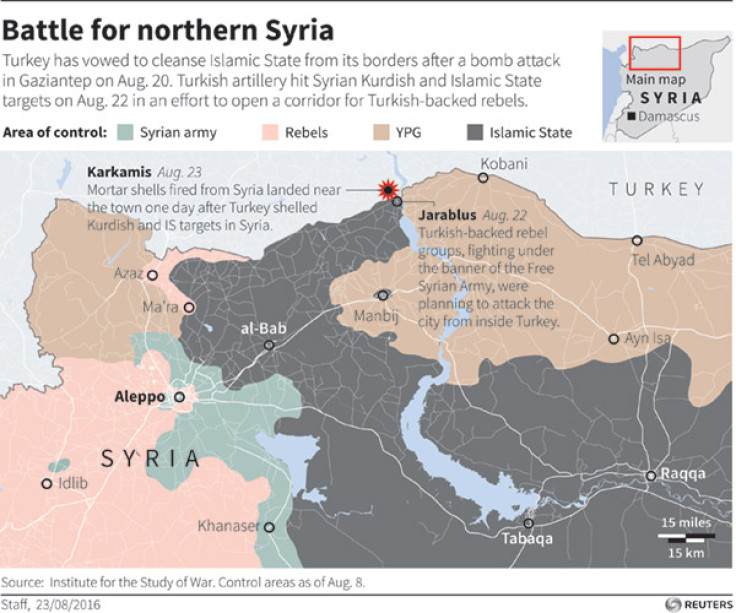Turkey and Syrian rebels join forces in fight against Isis and Kurds along border
The coordinated operation comes four days after a suicide bomber killed 54 people at a wedding in Gaziantep.
Turkish special forces, tanks and jets backed by planes from the US-led coalition have launched a co-ordinated offensive into Syria to try to drive Islamic State (Isis) from the border. Hundreds of Syrian opposition fighters were also part of the cross-border incursion to oust the militants from Jarablus. The military operation also aims to prevent further gains by Kurdish militia fighters along the Turkish border.

Turkish President Recep Tayyip Erdogan said the battle was against "against terror groups which constantly threaten our country", like Daesh and the the Kurdish PYD party. Ankara views the PYD as an extension of Kurdish militants fighting an insurgency in southeastern Turkey, putting it at odds with Washington, which sees the group as an ally in the fight against Islamic State.
The Turkish army began firing artillery rounds into Jarablus at around 0100 GMT and Turkish and US warplanes pounded IS targets with air strikes. Turkey and the US hope that by removing Isis from the border, they can deprive it of a smuggling route which provides it with foreign fighters and boosts its coffers with illicit trade.



Ahmad al-Khatib, a Syrian opposition media activist embedded with the rebels who crossed into Syria, said around 1,500 opposition fighters were involved. He said the fighters come from the US-backed Hamza brigade, as well as rebel groups fighting government forces in Aleppo, such as the Nour el-Din el Zinki brigade, the Levant Front, and Failaq al-Sham. Fighters from the powerful and ultraconservative Ahrar al-Sham brigade are also present, he said, and confirmed a report that the rebels seized the IS-held village of Kaklijeh near Jarablus.




Jarablus, which lies on the western bank of the Euphrates River where it crosses from Turkey into Syria, is one of the last important IS-held towns in a largely Kurdish-controlled area of northern Syria. It is located 20 miles (33km) from the town of Manbij, which was liberated from IS by Kurdish-led forces earlier this month. Taking Jarablus and IS-held town of al-Bab to the south would be a significant step towards linking up border areas under Kurdish control on both sides of the Euphrates.

Ankara has long declared the Euphrates river, which runs just east of Jarablus, a red line which it does not want them to cross. Foreign Minister Mevlut Cavusoglu said Kurdish fighters must return east of the Euphrates or Turkey would "do what is necessary".
Syria's government has denounced Turkish military incursion, describing it as a "blatant violation" of Syrian sovereignty. A statement reported by state-run news agency SANA called for an immediate end to the Turkish "aggression," which it says is being carried out under the pretext of fighting terrorism.
The dual-purpose military operation – named "Euphrates Shield" after the river running nearby – puts Turkey on track for a confrontation with the US-backed Kurdish fighters in Syria, the most effective fighting force against Daesh in the area.
Kurdish groups already control swathes of northern Syria where they have established de facto autonomy since the start of the Syria war. The YPG, the armed wing of the PYD, took near complete control of Hasaka, around 250km (155 miles) east of Jarablus. The Kurds' outsized role in the Syrian civil war is a source of concern for the Syrian government as well.
Assad and the Kurds agreed on a cease-fire, six days after the clashes erupted. The Kurdish Hawar News Agency said government forces agreed to withdraw from Hasaka as part of the truce. Syrian state media did not mention any withdrawal, saying only that the two sides had agreed to evacuate the wounded and exchange detainees. Government and Kurdish forces have shared control of Hasaka since the early years of the Syrian war.







Turkey's state-run news agency said that police teams also mounted simultaneous raids at multiple locations in Istanbul to detain several suspected members of the Islamic State group. The coordinated operation comes four days after a suicide bomber suspected of links to Daesh killed 54 people at a wedding in the southeastern city of Gaziantep.
© Copyright IBTimes 2024. All rights reserved.






